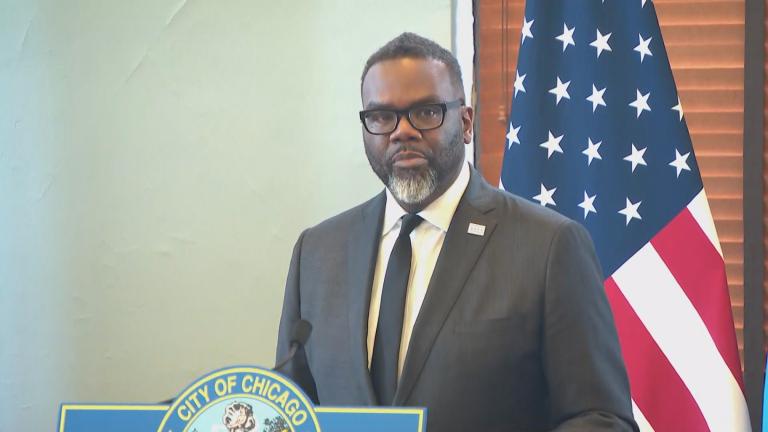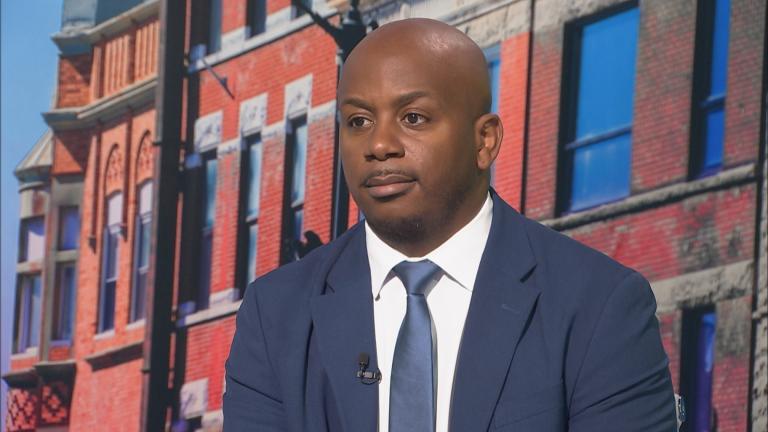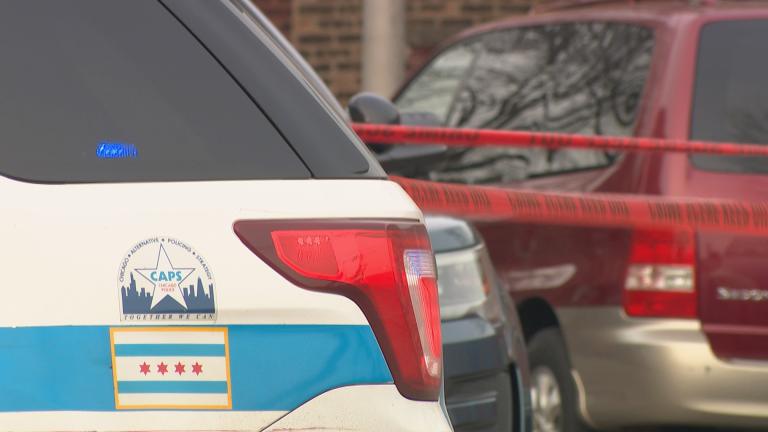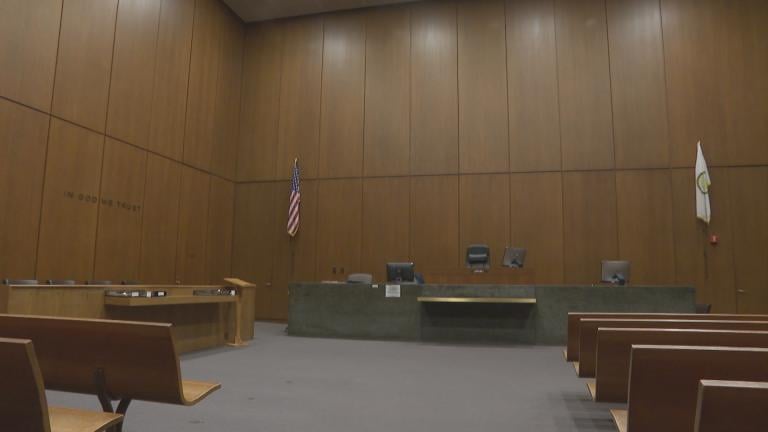It will be up to Garien Gatewood, the city’s new deputy mayor for community safety, to make good on Mayor Brandon Johnson’s promise to take a new approach to the surge of crime and violence that took hold in Chicago during the peak of the COVID-19 pandemic and has yet to fully recede.
Whether Gatewood — and Johnson — can reduce crime and violence by implementing a more holistic public safety plan will provide a searing test of leadership for the nascent mayoral administration.
“It’s not just drinking from a firehose, it’s like drinking from Lake Michigan, all at once,” said Gatewood, who earns $178,452 annually as the city’s deputy mayor for community safety.
Gatewood replaced Elena Gottreich, who served as deputy mayor for public safety under former Mayor Lori Lightfoot.
The position’s name change is evidence of Johnson’s new approach to crime and violence which will strive to increase the quality of life for Chicagoans who suffer from the effects the most, Gatewood said.
“We want to take a comprehensive approach to public safety,” Gatewood told WTTW News on “Chicago Tonight” on Monday, adding that the city will prioritize input from Chicagoans. “It is not a one size fits all answer.”
Gatewood joined the Johnson administration on June 1, after two years as the director of the Illinois Justice Project, where he advocated for a state law designed to make the state’s criminal justice system more fair, dubbed the SAFE-T Act, and pushed Chicago officials to fix a broken program designed to keep teens who commit minor crimes out of jail.
“We saw the problems that needed to be solved and tried to solve them,” Gatewood said.
Gatewood said he will have an eight-person staff to address the root causes of crime and violence in Chicago, and “change the trajectory” of the city by getting out of City Hall and into the neighborhoods suffering from crime and violence.
“We have to ensure that every voice is heard,” Gatewood said, adding that “top-down” solutions imposed on neighborhoods that have suffered from disinvestment for decades will not be effective.
“That’s what is going to drive this work,” Gatewood said.
Gatewood said he would use data that shows approximately 60% of all of the crime and violence in Chicago is concentrated in five-dozen police beats to not only ensure that police officers are a frequent presence on corners and in parks, but to also “flood” the area with services, including job training, counseling and other positive activities.
But data can only do so much, Gatewood said.
“We can’t subscribe to a numbers based approach,” Gatewood said. “We’re talking about people.”
And the city does not have the resources to fund that comprehensive approach — which is why Chicago’s business and philanthropic communities must step up, Gatewood said.
The center of that effort by the Johnson administration is to create more jobs for teens and young adults, not only during the summer months but year round. Johnson kicked off the city’s summer jobs program on Monday, announcing that it would employ nearly 23,000 young people for the next three months — approximately 2,000 more than last year.
But nearly 46,000 teens and young adults applied to the program, prompting a vot from Johnson to redouble his efforts to offer employment to everyone who wants a job.
Gatewood said he is clear-eyed about the scope of the challenge facing him, even as murders are down approximately 9% from the same time in 2022, and down about 12% compared to 2021.
“I understand what we inherited, and I understand it won’t change overnight,” said Gatewood, adding that it will take a collaborative “all-hands-on-deck” effort by not just City Hall and the Chicago Police Department but also the business and philanthropic communities. “I am under no illusion that I am going to solve all of the problems facing Chicago.”
Gatewood said his job is to coordinate that collaborative response using data about crime and violence — without losing sight of the fact that every shooting and murder represents real trauma for real people.
“That’s why I couldn’t sit on the sidelines,” Gatewood said. “I want to help as many people as possible.”
Contact Heather Cherone: @HeatherCherone | (773) 569-1863 | [email protected]







